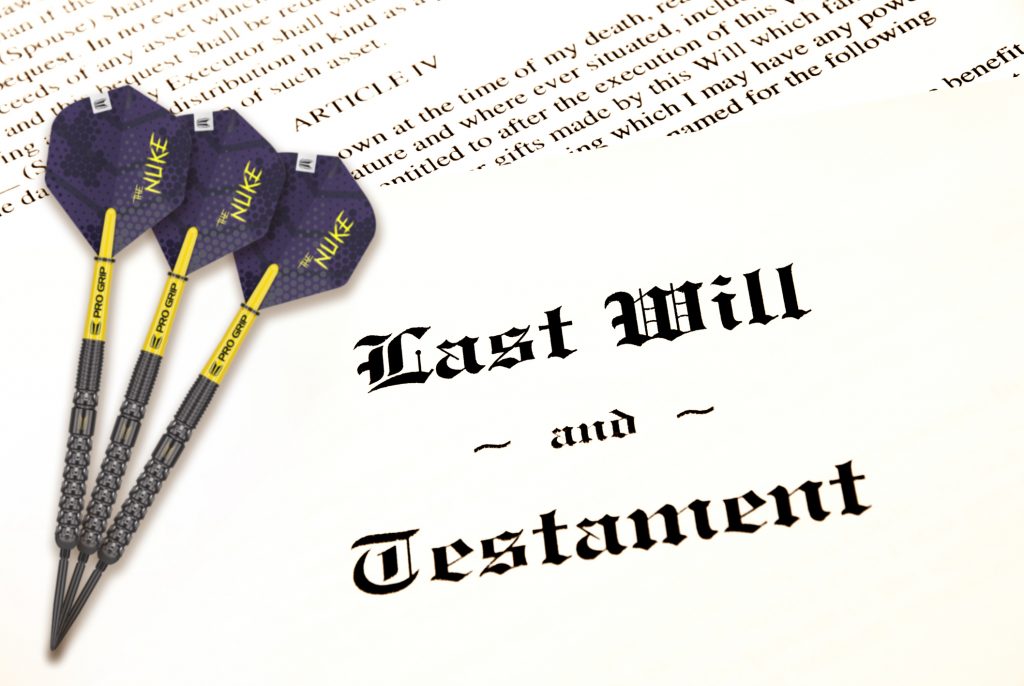Age required to create a Will.
The age at which someone can make a Will is 18 years old as stated under the Wills Act 1837 section 7. If someone dies without making a Will, their estate becomes intestate and follows the statutory distribution under intestacy. This means in the context of someone such as Luke Littler who obtained a large quantity of cash at the age of 16, should he die, he would do so intestate as he does not meet the statutory requirements to have a Will made.
Intestacy – The Law
The table that states the order in which an intestate estate is distributed is contained in the Administration of Estates Act 1925 in section 46(1) and would be distributed in the following order;
- If they leave no children, then everything shall go to their spouse or civil partner.
- If they do leave children, then.
- To the surviving spouse or civil partner, all personal chattels
- To the surviving spouse or civil partner, the residuary estate shall pay a fixed net sum, free of death duties and costs with simple interest on the date of death at a rate provided for in subsection 1(A) until it is paid or received.
- Subject to the above being provided, the residuary estate is held on trust 50/50 for the surviving spouse or civil partner and the children of the intestate estate.
- If there are no children but spouse or civil partner, then it will be held on trust for the children.
- If there are neither children nor a partner but both parents, it shall be held on trust for the mother and father.
- If only one parent lives, then it shall be held on trust for that one parent.
- If there is no living child, partner, or parents then it shall be distributed in the following order.
- On statutory trust for whole blood siblings, should no one take vested interest.
- On statutory trust for half-blood siblings, should no one take vested interest.
- On statutory trust for grandparents, should no one take vested interest.
- On statutory trust for aunts and uncles (who are whole blood siblings of the intestates’ parents) or their children may take their share should they pass, should no one take vested interest.
- On statutory trust for aunts and uncles (who are half-blood siblings of the intestates’ parents) or their children may take their share should they pass
- Should no vested interest be taken at this point then the assets of the intestate would default to the Crown.
Luke Littler
Applying the above legislation to Luke’s current situation and his position as a child in the eyes of the law. There has been no commentary on Luke Littler’s winnings or how to protect those winnings except for the income tax bill he is due to get from HMRC. Luke’s parents are his legal guardians until he turns 18 and are therefore legally responsible to protect him. However, the monies are paid to Luke as he is legally able to open a bank account and he can spend it as he wishes. There is nothing protecting him from outside influence and legally he cannot even help himself by making a Will, a Lasting Power of Attorney or instruct a financial advisor to give appropriate advice. It therefore raises the question of whether an individual should be able
to execute a Will at the age of 16?
In a world where an individual has to be 18 to have the right to vote or be married, it seems appropriate that this should be the age to enter into a testamentary document. In reality, should
Luke die before he is able to legally make a Will, his parents are his beneficiaries. His girlfriend would receive nothing and if Luke wanted to leave his assets to someone other than his parents, this would not be possible. Is this morally just? On the one hand it would be beneficial to allow 16 year-olds like Luke to protect their assets from potential outside influence, whatever that may be, but on the other hand is a 16 year old responsible and knowledgeable enough to make that kind of decision?

